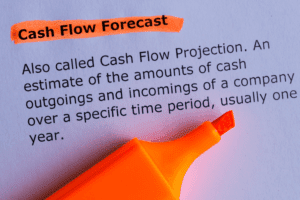Bookkeeping for Independent Contractors: A Guide

If you’re self-employed and are paying out of pocket for all your business expenses, it’s important that you keep records for and deduct as many of them as possible on your taxes. If you’re self-employed, you’re not required to hire a bookkeeper or an accountant. However, hiring a professional is highly recommended when it comes to filing your taxes and making your tax payments. Submitting late or incorrect amount of tax payments can result in penalties and fines.
Just keep all your cell service expenses in its own category and your tax pro can help you figure it out later. When you’re an employee, your income is easily verified by things like your pay stubs and W-2 forms. Or keep track of everything so that you only have to pay on what’s left over. The thing is, we have to do these deliveries on our own dime. Doordash and Uber Eats and Grubhub don’t care what it costs and it really isn’t their business.
A New Chapter Begins: Jeff Campbell CPA Joins Forces with Straight Talk CPAs
Anytime you complete more than $600 of work for a client, they will need to file and send you a copy of Form 1099-MISC. This is an information form for filing to send non-salary income numbers to the IRS. If they do not send you a Form 1099-MISC, you will want to follow up with your client.

However, what you should be asking is, can you afford to not bring in a professional to help with such important information. No matter how successful you currently feel as you are an independent contractor, it would be beneficial if you looked ahead. One of the schedules on your Form 1040, Individual Income Tax Return, will be a Schedule SE. You should figure up your total self-employment income and loss using the Schedule C portion of Form 1040’s line 31 before completing your SE.
Can you tell an independent contractor when to work?
BooXkeeping is a nationwide provider of affordable outsourced bookkeeping services to small and medium-sized businesses. As an independent contractor, it is important to understand your tax obligations. This includes understanding the types of taxes you are responsible for, such as income and self-employment taxes.

Contractors can easily access the Tax Advice tab on their home page within the Deel platform to connect with a qualified tax advisor in their country of residence. It’s a straightforward process that provides personalized assistance tailored to the contractor’s specific needs. Navigating diverse bookkeeping for independent contractors tax laws, handling withholding tax, leveraging tax treaties, maintaining meticulous records, and managing currency exchange impacts can be complex. Tax support is essential in both scenarios to ensure compliance, prevent disputes, and optimize financial outcomes.
Recording Income and Expenses
When it comes to running a successful business as an independent contractor, maximizing profitability and fostering growth are top priorities. This is where a skilled bookkeeper can play a crucial role in your business strategy. Once you know how much you earned, you’ll need to figure out how much you must pay in self-employment taxes. Using Schedule SE, you calculate that you owe self-employment taxes of $5,914. Half of this tax that you pay ($2,957) is taken as a deduction on Page 1 of your Form 1040. You also have some expenses that you can deduct from your income.

You should also apply for a federal employer identification number (FEIN) from the IRS even if you don’t have employees. If you earn more than $600 while working for one of your clients, your client will send a Form 1099-MISC to you and the IRS. If you do not receive this form, you are still responsible for including the money that you earned. You should have a separate saving account you use to deposit money throughout the year to pay your self-employment tax so that you don’t have a huge tax bill at the end of the tax year. Independent contractors typically also must make quarterly estimated tax payments throughout the year. An independent contractor does not have the ease of having an employer take their taxes out of each paycheck.

